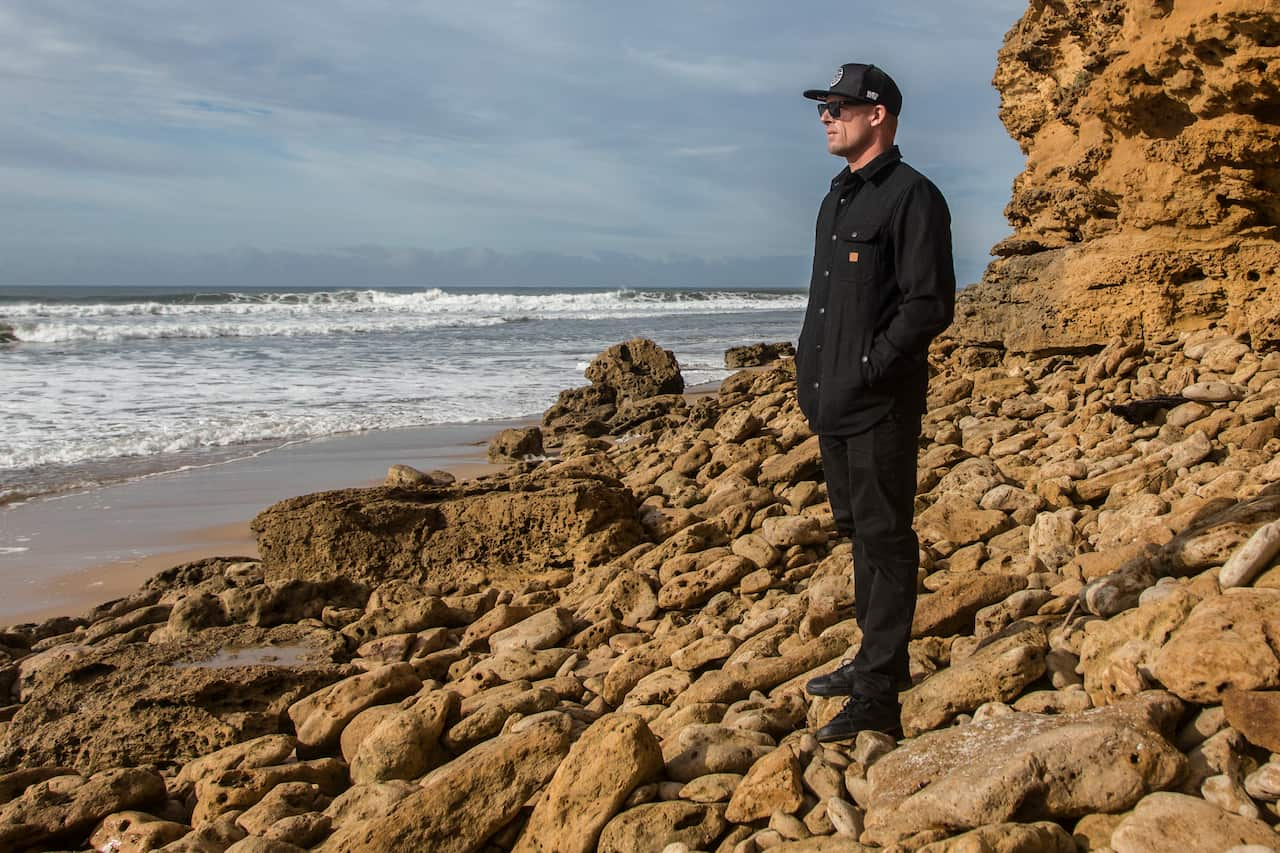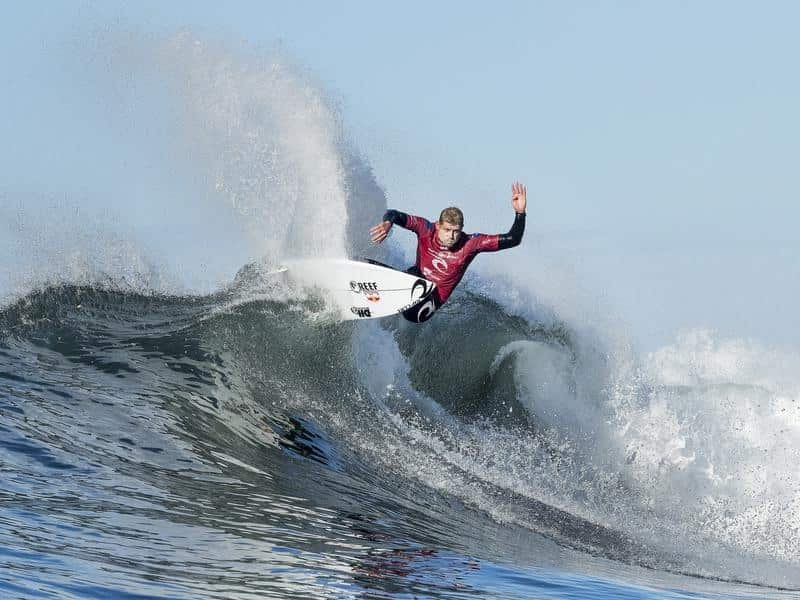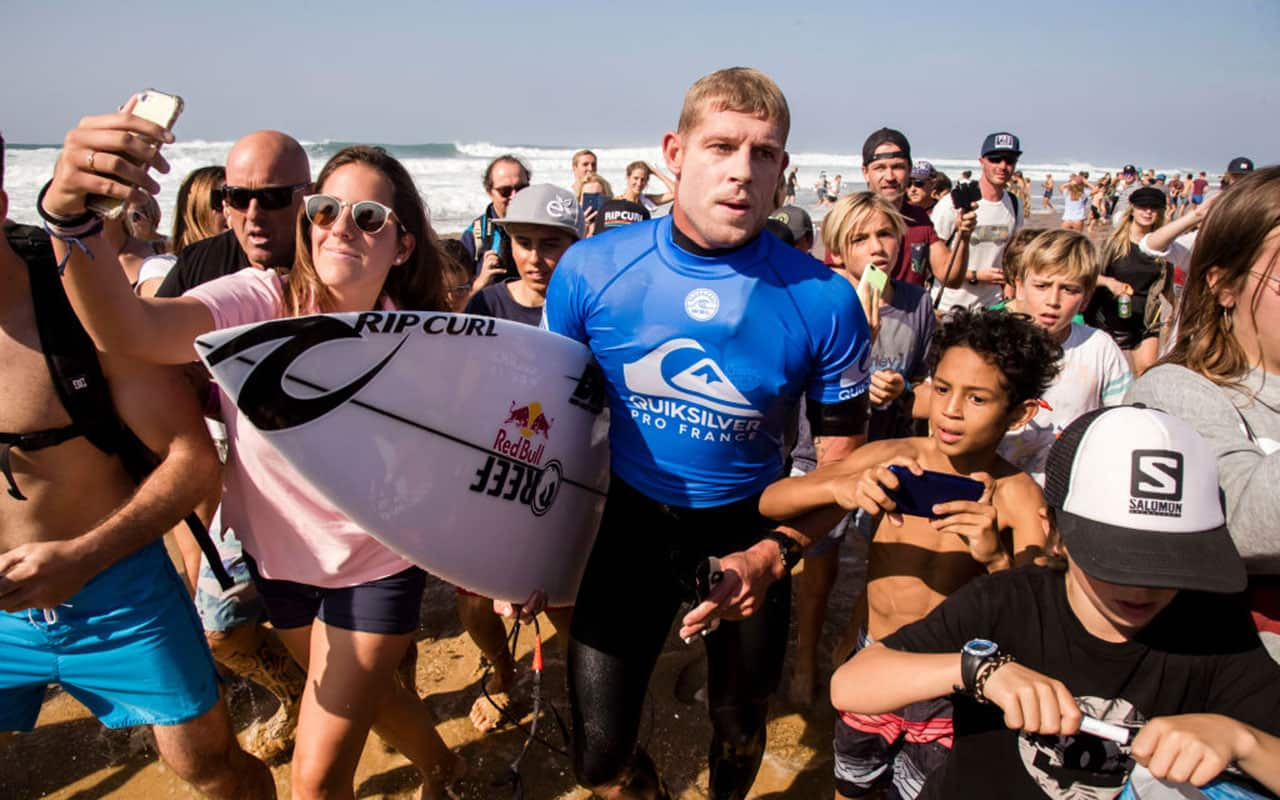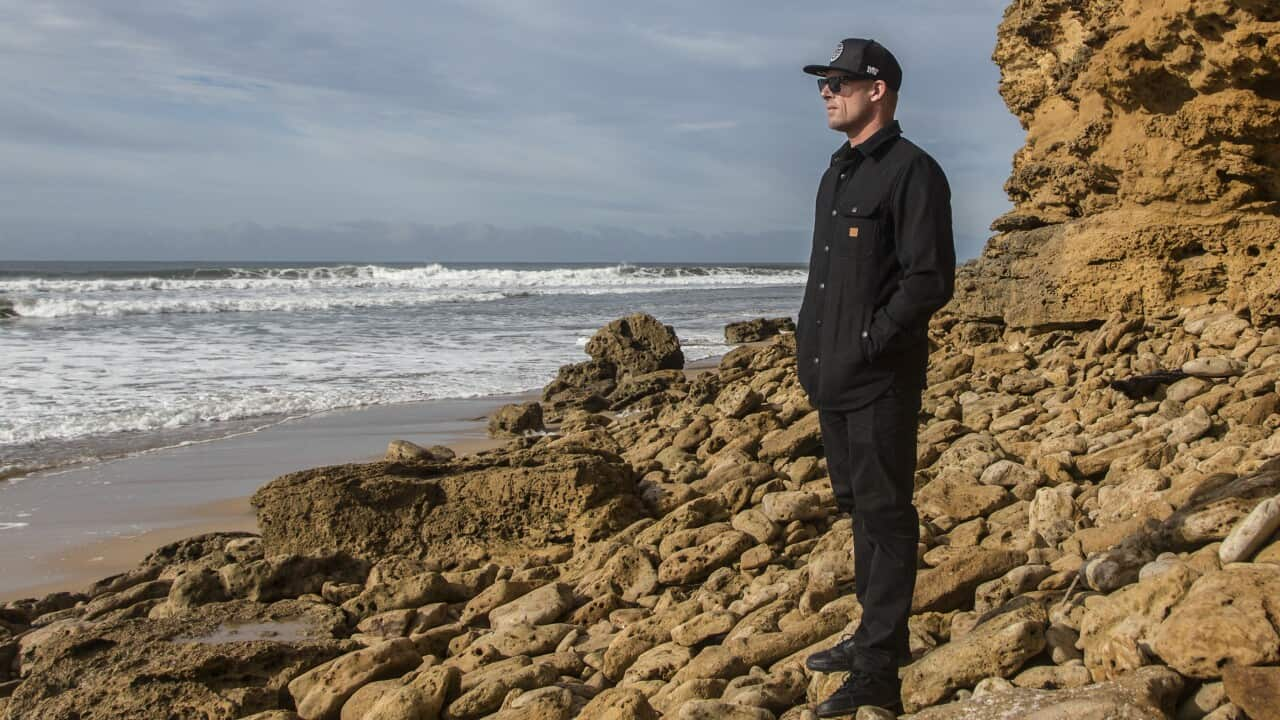Mick Fanning became a household name around the world after fighting off a great white shark during a surfing competition in South Africa three years ago. But in Australia, the three-time world champion was already considered a national hero.
This week, the nation is bidding farewell to him at his final pro competition, at the surfing mecca of Bells Beach, Victoria.
It is fitting that Fanning is saying goodbye to pro surfing at the Rip Curl Pro Bells Beach, the longest-running championship-level event on the World Tour and one of the sport’s most prestigious.
“It was always the idea to come and finish at Bells,” he said on Tuesday, standing atop the cliffs that tower over the world-famous surf destination. “I feel calmer down here. I can sort of just hide a little bit better.”

Bells Beach is renowned for big, raw and challenging southern swells surrounded by rugged cliffs that serve as a natural amphitheatre. The nearby town of Torquay is where the surf sportswear companies Quicksilver and Rip Curl were founded, and some locals say it is where fleece-lined boots Uggs came from.
But Bells Beach is also where Fanning, now 36, shocked the surfing world almost two decades ago, winning his first-ever World Surf League tour event as a low-ranked wild card.
He would go on to win here three more times.
Aside from world titles in 2007, 2009 and 2013, Fanning has countless World Tour wins and top five finishes. His speed on a wave and his white hair make him easy to spot, and have earned him the nickname White Lightning.
“He’s an icon of the sport,” American surfer Kelly Slater said of Fanning in a telephone interview from the Gold Coast. Slater, himself an 11-time world champ, described Fanning as the fiercest of competitors and one of his greatest rivals.
He’s an icon of the sport - US surfer Kelly Slater
Fanning is also recognised for what he has overcome: the untimely deaths of two brothers, a debilitating and gruesome hamstring injury and, of course, fighting off a shark at Jeffreys Bay in South Africa. (He would return there the next year and win.)
“I wake up in the morning and I’ve got to know what the ocean’s doing,” Fanning said. “I’ve got to have some sort of water on me. It’s our Australian lifestyle to be around the water.”
A surfing powerhouse
Most of Australia's 24 million people live in or near coastal areas.
“We consistently created this pipeline of champion surfers,” said Layne Beachley, a former world champion Australian surfer.
Fanning’s fellow surfers credit him with helping advance the sport and attract a new audience, but those who know him well say his mark extends well beyond the water.

“Mick’s one of the true gentlemen of surfing,” Beachley said.
Younger surfers, too, have found in Fanning a model for their own careers and conduct.
“He’s one of those people that’s really able to turn his competitive edge on like a switch,” said John John Florence, 25, of Hawaii, who was the World Surf League’s men’s champion last year. “You’ll have a crazy battle heat with him, and then you’ll get out of the water and he’ll be completely normal and the nicest person in the world.”
“That’s something I take away from him and try to do my best at,” Florence said.
Where to next?
Fanning credits the ocean with keeping him humble.
“Every day when you think you’re on top of the world, the ocean would have put you back in your place,” he said.

He said that he would never lose his love of surfing, but that the motivation and competitive streak he is so well known for have waned recently. He added that he felt he had been missing out on other aspects of life.
And because nature has given him so much, providing the platform for his success, he said it was time to give back. Post-surfing, he is planning to focus on conservation work in remote corners of the world.
“I just felt like there was more out there,” he said. “There’s more to life than just being stressed out in crazy waves.”

